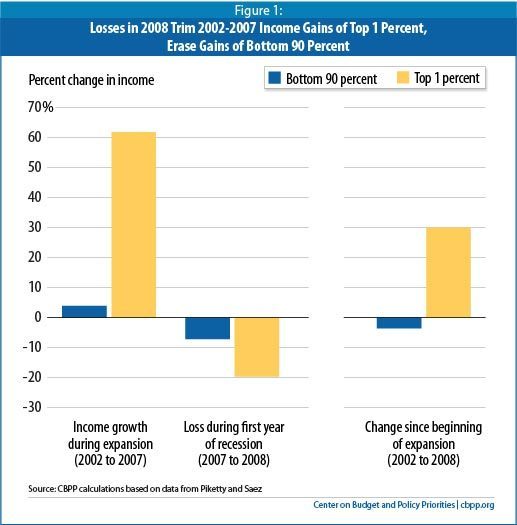The richest 1 percent of U.S. households took a significant hit in the recession between 2007 and 2008, according to recent tax data analysis, but they still account for more than a fifth of the nation's total income -- among the highest levels of stratification since the 1920s.
A new report by the Center on Budget and Policy Priorities shows that between 2002 and 2007, the income of the top 1 percent of U.S. earners grew more than ten times faster than the bottom 90 percent of households, claiming two-thirds of the nation's total income gains. Those top-earning households (with incomes of $370,000 and higher) lost about 20 percent of income after the first year of the recession, but still earned more than they were earning before the expansion in 2002. The bottom 90 percent, by contrast, lost all gains from the growth period in 2008, ending up with four percent less income than they earned in 2002.
Comparing the pre-tax incomes of U.S. households in 2008 to those in 1979 provides an even starker contrast: while the bottom 90 percent of earners made almost $900 less in 2008 than in 1979, the top one percent brought in more than $700,000 more.

Chad Stone, the chief economist for CBPP, said it's clear from the report that the richest American households have not been devastated by the recession.
"It looks from this particular data like all the gains are going to the top," he told HuffPost. "It's a winner-take-all economy now -- there aren't the same constraints on people getting income at high levels. This was just a speedbump for them. Unless there's a change in the behavior of CEOs and salary-setting committees and our policies, history suggests that the concentration is gonna keep going up long after this recession."
